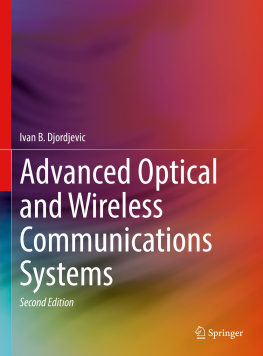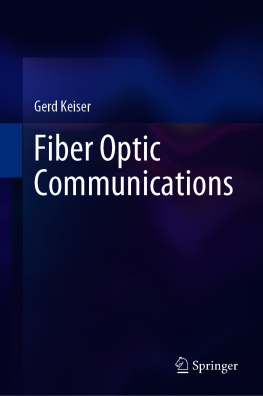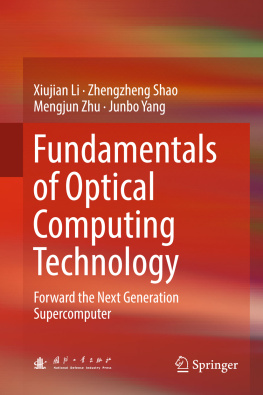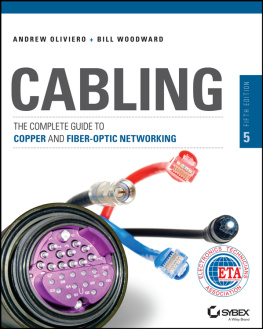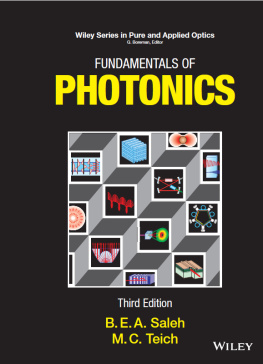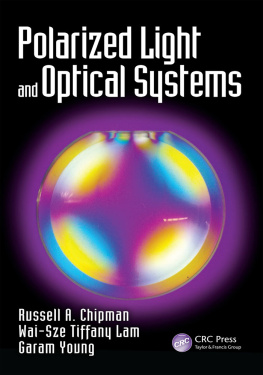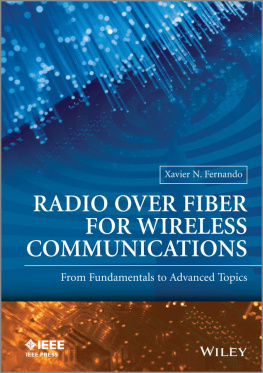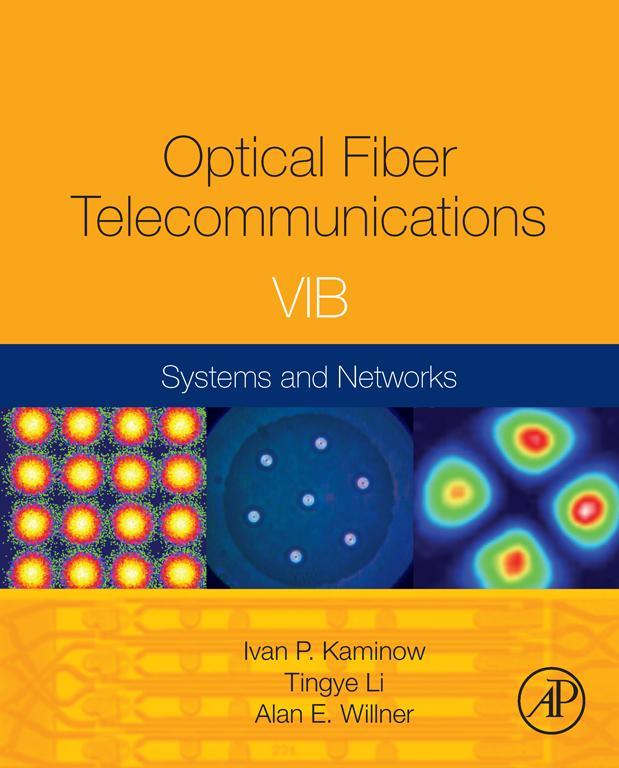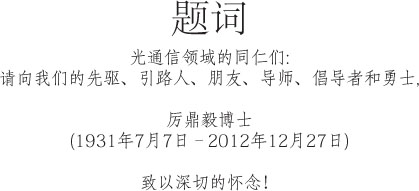Six Editions
Installments of the series have been published roughly every 58 years and chronicle the natural evolution of the field:
In the late 1970s, the original OFT (Chenoweth and Miller, 1979) was concerned with enabling a simple optical link, in which reliable fibers, connectors, lasers, and detectors played the major roles.
In the late 1980s, OFT II (Miller and Kaminow, 1988) was published after the first field trials and deployments of simple optical links. By this time, the advantages of multi-user optical networking had captured the imagination of the community and were highlighted in the book.
OFT III (Kaminow and Koch, 1997) explored the explosion in transmission capacity in the early-to-mid-1990s, made possible by the erbium-doped fiber amplifier (EDFA), wavelength-division-multiplexing (WDM), and dispersion management.
By 2002, OFT IV (Kaminow and Li, 2002) dealt with extending the distance and capacity envelope of transmission systems. Subtitle nonlinear and dispersive effects, requiring mitigation or compensation in the optical and electrical domains, were explored.
OFT V (Kaminow, Li, and Willner, 2008) moved the series into the realm of network management and services, as well as employing optical communications for ever-shorter distances. Using the high-bandwidth capacity in a cost-effective manner for customer applications started to take center stage.
The present edition, OFT VI (Kaminow, Li, and Willner, 2013), continues the trend of photonic integrated circuits, higher-capacity transmission systems, and flexible network architectures. Topics that have gained much interest in increasing performance include coherent technologies, higher-order modulation formats, and space-division-multiplexing. In addition, many of the topics from earlier volumes are brought up to date and new areas of research which show promise of impact are featured.
Although each edition has added new topics, it is also true that new challenges emerge as they relate to older topics. Typically, certain devices may have adequately solved transmission problems for the systems of that era. However, as systems become more complex, critical device technologies that might have been considered a solved problem would now have new requirements placed upon them and need a fresh technical treatment. For this reason, each edition has grown in sheer size, i.e. adding the new and, if necessary, re-examining the old.
An example of this circular feedback mechanism relates to the fiber itself. At first, systems simply required low-loss fiber. However, long-distance transmission enabled by EDFAs drove research on low-dispersion fiber. Further, advances in WDM and the problems of nonlinear effects necessitated development of non-zero-dispersion fiber. Cost and performance considerations today drive research in plastic fibers, highly bendable fibers, few-mode fibers, and multicore fibers. We believe that these cycles will continue.
Perspective of the past 5 years
OFT V was published in 2008. At that point, our field was still emerging from the unprecedented upheaval circa 2000, at which time worldwide telecom traffic ceased being dominated by the slow-growing voice traffic and was overtaken by the rapidly growing Internet traffic. The irrational investment exuberance and subsequent depression-like period of oversupply (i.e. the bubble-and-bust) wreaked havoc on our field. We are happy to say that, by nearly all accounts, the field continues to gain strength again and appears to have entered a stage of rational growth. Demand for bandwidth continues to grow at a very healthy rate. Capacity needs are real, and are expected to continue in the future.
We note that optical fiber communications is firmly entrenched as part of the global information infrastructure. For example: (i) there would be no Internet as we know it if not for optics, (ii) modern data centers may have as many as 1,000,000 lasers to help interconnect boards and machines, and (iii) Smartphones would not be so smart without the optical fiber backbone.


